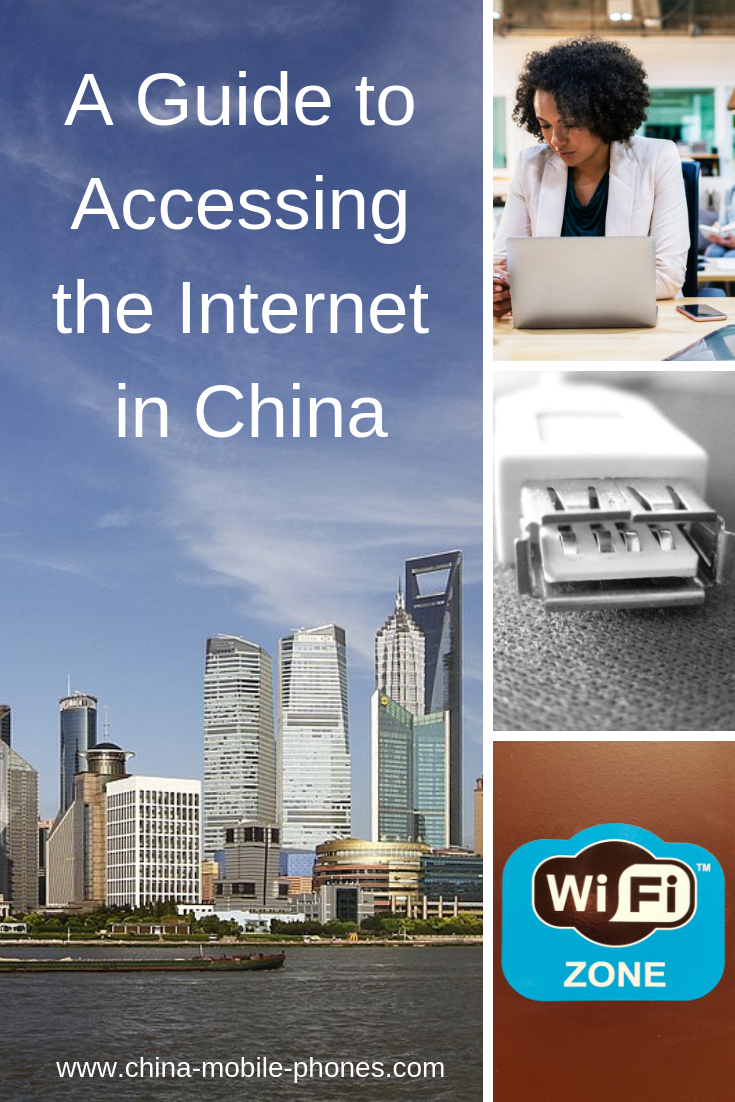- Home
- Internet Access
How to Access Internet in China as an International Traveler
Table of Contents
Understanding the "Great Firewall"
Preparing for Your Trip
Accessing the Internet While in China
China Internet Access FAQs
China is one of the most popular tourist destinations in the world, attracting millions of visitors every year. However, accessing the internet as an international traveler can be a challenge, as the Chinese government heavily regulates the internet and restricts access to many popular websites and services. In this article, we will provide a comprehensive guide for accessing the internet in China as an international traveler, including tips on how to bypass the Great Firewall and keep your data secure.
Understanding the Great Firewall of China: Internet Censorship
The Great Firewall of China is a term used to describe the Chinese government's efforts to restrict and censor internet access within its borders. This firewall blocks access to many popular websites and services, including Google, Facebook, Twitter, and YouTube, as well as news sites, human rights websites, and other sources of information that the Chinese government deems inappropriate or politically sensitive.
Preparing Your Devices Before You Travel
Before you leave for China, it's important to prepare your devices to ensure that you will be able to access the internet while you're there. Here are some tips to help you get started:
- Update your operating system and security software to the latest version
- Install a virtual private network (VPN) on your devices
- Make sure that your devices are encrypted to protect your data
- Back up your data and important files to a cloud storage service or external hard drive
Using a VPN to Access the Internet in China
A VPN is a tool that encrypts your internet connection, making it difficult for anyone, including the Chinese government, to monitor or restrict your internet access. A VPN allows you to access the internet as if you were located in a different country, bypassing the Great Firewall of China and allowing you to access restricted websites and services.
When choosing a VPN, look for one that has servers in countries outside of China, as well as a strong reputation for security and privacy. It's also important to choose a VPN with a good customer support team, in case you run into any issues while using it in China.
Tips for Using a VPN Safely and Effectively in China
- Choose a reliable VPN with a good reputation for security and privacy (We recommend Express VPN)
- Connect to a VPN server outside of China to avoid detection by the Chinese government
- Use a VPN with obfuscation technology to conceal your VPN usage from the Great Firewall
- Turn off your VPN when not in use to conserve your device's battery life
Accessing the Internet in China
In addition to using a VPN, there are a few other ways to access the internet in China as an international traveler:
Hotspot tethering: Connect to the internet using a hotspot tether from your smartphone, which can be less likely to be detected by the Great Firewall than using a VPN on a laptop or tablet.
Renting or buy a local SIM card: Rent or buy a local SIM card and connect to the internet through a local mobile network, which may be more stable and faster than using a VPN, but also carries a higher risk of data monitoring and restrictions.
Using a public Wi-Fi network: Connect to a public Wi-Fi network in a hotel, café, or other public space, but be aware of the security risks associated with using public Wi-Fi networks.
Airport/Train Stations — Wi-Fi Connection for Chinese Phone Cards
Most airports and train stations in China offer Wi-Fi connections for Chinese phone cards. These Wi-Fi connections are typically provided by various mobile phone carriers such as China Mobile, China Unicom, and China Telecom.
To access the Wi-Fi connection, customers will need to connect their device to the network provided by their chosen carrier, enter their phone number when prompted, and then enter a verification code sent via SMS to complete the authentication process. After successful authentication, customers can use the Internet service provided by the carrier at no extra charge or roaming fees.
If you have no Chinese mobile number, you may use nearby self-service kiosk machine to get a verification code.
Foreigners Are Not Allowed Access to Internet Cafés
In many Internet cafes, wireless connections are not available. Visitors can utilise the computers at each of these places. Since your passport and visa are not likely to be accepted at China's Internet cafés, they are not a suitable option while trying to get online there. All Internet cafés in China now require visitors to produce their ID card.
Internet connection speeds in China
The internet connection speeds in China in 2023 will likely depend on the development of 5G technology, which is currently being rolled out across the country. According to estimates from the Telecommunications Industry Association (TIA), 5G technology should be widely available across China by 2022 and could offer speeds of up to 10 gigabits per second (Gbps). This would be a significant improvement over current average internet speeds, which range from 10 megabits per second (Mbps) to 40 Mbps.
Protecting Your Data While Using the Internet in China
When accessing the internet in China, it's important to take steps to protect your data and privacy.
Besides to use a VPN to encrypt your internet connection and protect your data from privacy violations, here are some tips to help you stay safe:
- Avoid accessing sensitive or personal information while connected to public Wi-Fi networks.
- Be cautious when downloading apps or software in China, as many are known to contain malware or spyware.
- Keep your devices secure by using strong passwords and enabling device encryption.
Tips for staying connected in rural or remote areas
While the major cities in China generally have reliable and fast internet access, accessing the internet in rural or remote areas can be more challenging. However, there are a few tips and tricks that can help you stay connected in these areas:
Plan ahead: Before you travel to rural or remote areas in China, research the available internet options and make a plan for staying connected. This may include purchasing a local SIM card, downloading offline maps and apps, and packing necessary charging equipment.
Consider satellite options: If traditional internet options are unavailable in your location, consider using a satellite device to connect to the internet. This can be a more expensive option, but it can provide reliable internet access in remote areas where other options are not available.
Look for Wi-Fi hotspots: Some rural areas in China may have public Wi-Fi hotspots available, such as at local hotels or tourist attractions. Be sure to check for these options and bring a device that can connect to Wi-Fi, such as a smartphone or tablet.
Invest in a portable hotspot: Portable hotspots are small, portable devices that can connect to the internet and provide Wi-Fi for multiple devices. This can be a convenient option for staying connected in rural areas, and some portable hotspots can even be rented or purchased in China.
Buy a local SIM card: Buying a local SIM card can provide reliable internet access, especially if you plan to use your phone or tablet for navigation or online communication. Make sure to research the available options and choose a plan that fits your needs and budget.
By considering these tips and planning ahead, international travelers can stay connected and connected while traveling in rural or remote areas in China. With the right preparation, you can ensure a smooth and productive trip, no matter where your travels take you.

China Internet Access FAQs
Is it illegal to use a VPN in China?
Is it illegal to use a VPN in China?
Using a VPN in China is technically illegal, though the government does not often take steps to enforce the law. The Chinese government strictly regulates the internet and many websites are blocked or censored. VPNs help users access these blocked sites and bypass censorship, which is why they are illegal. Despite this, many people in China use VPNs to access information that would otherwise be inaccessible.
As long as users maintain a high level of security and discretion when using their VPNs, they can generally use them without fear of being caught by authorities. Therefore, while using a VPN in China is technically illegal, it is still possible for users to do so with relative safety and without fear of repercussions.
Can I use social media in China?
Can I use social media in China?
Many popular social media platforms, including Facebook, Twitter, and Instagram, are blocked by the Great Firewall of China. However, some international travelers are still able to access them using a VPN or other methods. It's important to be cautious when using social media in China, as your activity may be monitored by the government.
Can I make voice and video calls in China?
Can I make voice and video calls in China?
Voice and video call services, such as Skype and FaceTime, are also blocked by the Great Firewall of China. However, some international travelers are still able to use these services using a VPN or other methods. It's important to be cautious when making voice and video calls in China, as your activity may be monitored by the government.
Can I access Google in China?
Can I access Google in China?
Google is one of the many popular websites that is blocked by the Great Firewall of China. However, some international travelers are still able to access Google using a VPN or other methods.
How can I stay safe when using the internet in China?
How can I stay safe when using the internet in China?
When using the internet in China, it's important to take steps to protect your data and privacy. This includes using a VPN to encrypt your internet connection, avoiding sensitive or personal information while connected to public Wi-Fi networks, being cautious when downloading apps or software, and keeping your devices secure with strong passwords and device encryption.
Additionally, it's important to be aware of the risks associated with using the internet in China, as the Chinese government is known to monitor and restrict online activity. By staying informed and following best practices for online security, international travelers can access the internet while minimizing their risk of privacy violations.
In conclusion, accessing the internet in China can be challenging, but with the right preparation and tools, it is possible to stay connected and safe while traveling. Whether you need to stay connected for work or leisure, to use of the internet will make your experience in China much more enjoyable and convenient. So be sure to take the necessary steps to protect your data and privacy, and stay informed about the risks and restrictions associated with using the internet in China.
Have A Story About Internet Access ?
Share your story, tips or review about internet access ? Help others on their international trip.
From China Internet Access to Home Page








New! Comments
Have your say about what you just read! Leave me a comment in the box below.